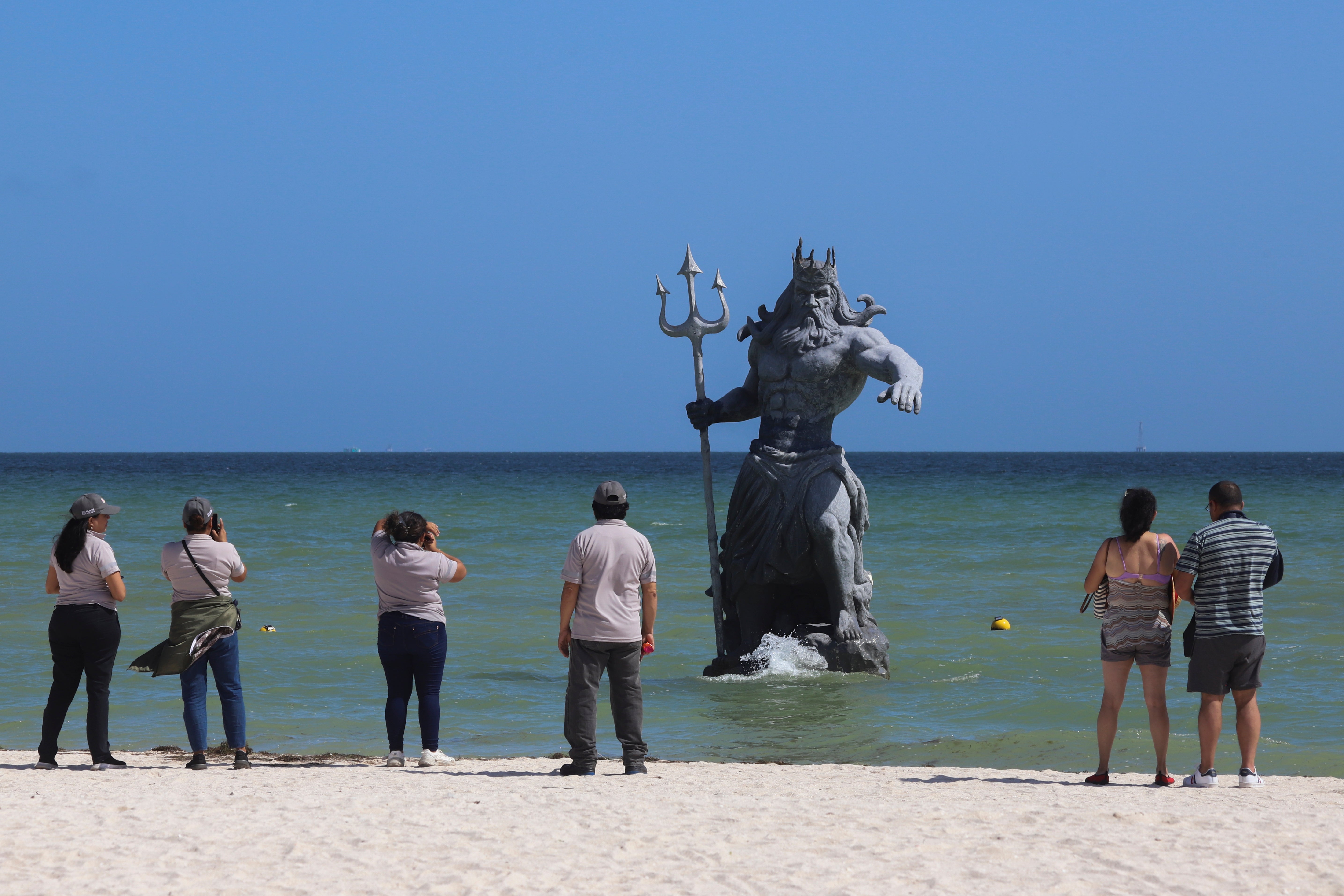The gods must be angry: Mexico 'cancels' statue of Greek god Poseidon after dispute with local deity
Mexican authorities have slapped a “closure” order on a 10-foot tall aquatic statue of the Greek god of the sea Poseidon that was erected in May in the Gulf of Mexico just off the beach in the town of Progreso, Yucatan

The gods must be angry — or just laughing at the hubris of humanity.
Authorities in Mexico have slapped a “closure” order on a 10-foot-tall (3-meter) aquatic statue of the Greek god of the sea Poseidon that was erected in May in the Gulf of Mexico just off the town of Progreso, Yucatan.
Mexico’s environmental protection agency said late Thursday that the statue, which appears to show an angry trident-wielding Poseidon “rising” from the sea a few meters from the beach, lacked permits. In the few months it was up, tourists had gathered to take pictures of themselves with it as a striking background.
But it was symbolically “closed" Thursday — and could be removed altogether — after a group of activist lawyers filed a legal complaint saying the statue of the Greek offended the beliefs of local Maya Indigenous groups who prefer their own local god of water, known as Chaac.
It's always been dangerous for humans to get involved in battles between deities. But this one appears to be all about present-day humanity, combining “cancel culture,” social media storms, lawsuits and the one truly fearsome, overpowering force in today's world: Instagram selfie-fueled tourism.
True to form, Mexico social media users took to, well, social media, to crow about the decision, with at least a dozen posting slogans like “Chaac One, Poseidon Zero.”
There are arguments on both sides.
“Poseidon is a Greek god who is alien to our Maya culture," according to the legal complaint filed recently against the statue. “I have a human right for my Maya culture to be preserved.” The lawyers' group that filed the complaint did not immediately respond to requests for comment.
The complaint also mentions the alleged lack of permits.
Technically, under Mexican law, any building project that could alter the ecosystem must file impact statements and get approval, though the government routinely violates its own rules and often slaps the little-feared “closure” stickers on private projects long after the damage is already done.
The office of environmental protection said the Poseidon statue had been erected by the Progreso municipal government without environmental impact studies. The office said it would “continue the administrative process (regarding the statue) to determine the appropriate actions.”
But the federal government, little known for its concern for the environment, appears to be responding more to pressure groups.
Critics of the statue cite a series of recent storms in and around the Gulf — Tropical Storm Alberto in June and Hurricane Beryl this week — as proof that Chaac, a fanged, hook-nose deity who isn't quite as Instagram-friendly as Poseidon, is angry.
Defenders of the statue — which strikingly shows Poseidon's body rising mightily from a relatively, calm, open stretch of water near the beach — also have their arguments, though they might not hold up as well in court: it's pretty, and it's good for business.
“It's an attraction for our town and it draws attention,” said Lizeth Alvarado Juárez, 28, an employee at a hotel in Progreso. “There are people who come from Merida (the state capital) just to see the Poseidon.”
Battles between the gods just aren't what they used to be. “It's all about the memes,” Alvarado Juárez said.
___
Follow the AP’s coverage of global elections at: https://apnews.com/hub/global-elections/
Bookmark popover
Removed from bookmarks